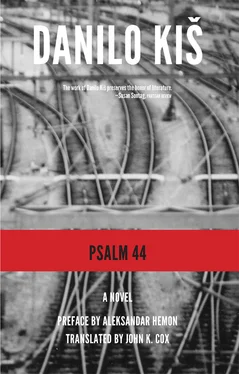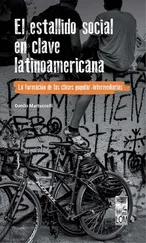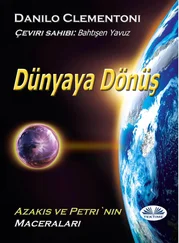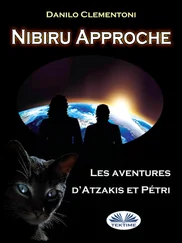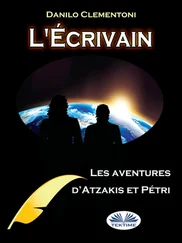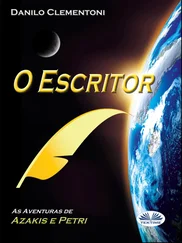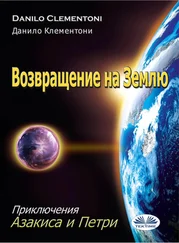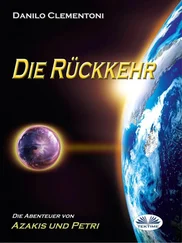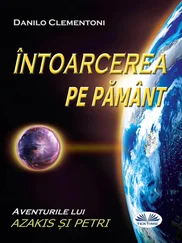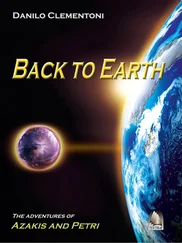Danilo Kiš - Psalm 44
Здесь есть возможность читать онлайн «Danilo Kiš - Psalm 44» весь текст электронной книги совершенно бесплатно (целиком полную версию без сокращений). В некоторых случаях можно слушать аудио, скачать через торрент в формате fb2 и присутствует краткое содержание. Год выпуска: 2012, Издательство: Dalkey Archive Press, Жанр: Современная проза, на английском языке. Описание произведения, (предисловие) а так же отзывы посетителей доступны на портале библиотеки ЛибКат.
- Название:Psalm 44
- Автор:
- Издательство:Dalkey Archive Press
- Жанр:
- Год:2012
- ISBN:нет данных
- Рейтинг книги:4 / 5. Голосов: 1
-
Избранное:Добавить в избранное
- Отзывы:
-
Ваша оценка:
- 80
- 1
- 2
- 3
- 4
- 5
Psalm 44: краткое содержание, описание и аннотация
Предлагаем к чтению аннотацию, описание, краткое содержание или предисловие (зависит от того, что написал сам автор книги «Psalm 44»). Если вы не нашли необходимую информацию о книге — напишите в комментариях, мы постараемся отыскать её.
Psalm 44 — читать онлайн бесплатно полную книгу (весь текст) целиком
Ниже представлен текст книги, разбитый по страницам. Система сохранения места последней прочитанной страницы, позволяет с удобством читать онлайн бесплатно книгу «Psalm 44», без необходимости каждый раз заново искать на чём Вы остановились. Поставьте закладку, и сможете в любой момент перейти на страницу, на которой закончили чтение.
Интервал:
Закладка:
“I don’t understand why it’s forbidden to ride the streetcar! I just don’t understand. . how could riding a streetcar can be forbidden?”—And at that point mother tapped her head, not in the way she would if something had crossed her mind, or not just in that way, Marija saw her mother raising her hand to her forehead and holding it there, not as someone would if they were wondering about something but as if she were brushing away a broken-hearted resolution from her forehead along with a strand of hair, and then Marija continued watching as her mother stretched her arm out with the same hopeless gesture in the direction where the streetcar stood, like a toy, and her mother stared, still searching with her eyes I don’t understand why riding the streetcar is forbidden as if she were seeing a streetcar for the first time, wondering, lips pursed, what purpose that blue tin can with the lyre on top served, whether it was a vehicle or a children’s toy or maybe something even more obscure, maybe a dangerous or even a sinful thing; and then Marija heard her mother’ voice, like a rebuke:
“My God, you aren’t a child anymore! Haven’t you seen anything around you that might give you a hint?” and then, as if she were pointing out the letters in a primer to someone just learning their alphabet or pretending not to know what was what or even that he couldn’t see them: “Read that. There, you see, the white letters. By the door. . Do you understand? You speak good German. . Yes, that placard on the streetcar. Next to the door. FÜR JUDEN VERBOTEN. Do you understand: für Juden verboten? Do you understand now?”—and Marija grasped it all immediately, at least as far as the translation from German went, of all things her mother hadn’t needed to translate that, but she understood something else too in the murky fabric of events, though still she felt she hadn’t been given sufficient cause to alter the expression on her face or to stop pursing her own lips like that, like a cantankerous little witch, and then she resolved firmly and just out of spite to tell her father everything anyway, in order to find out the remainder of what she didn’t know, the remainder of the truth that was still hiding from her but that she must ultimately find out, lest she remain or become a genuinely cantankerous witch and go on pursing her lips forever, or at least until she finally came to know what it meant that people all of a sudden, while she’d been in the village, had written FÜR JUDEN VERBOTEN on the streetcars, which is to say why this was so, why she was no longer allowed to ride on the streetcar,
What about the yellow one, Mama
Not the yellow one either
child, you aren’t allowed on any streetcar
understand: not any
But can Ilonka Kutaj ride them?
Yes, Ilonka Kutaj for instance, that chatterbox stupid louse-ridden ignoramus urchin D-student at the bottom of the class on whose account Marija had to flee her village and get into an argument with her mother and now she’ll have to have one with her father too and she’ll quarrel with the entire world if necessary, she’ll put on a pouty face even if it makes her uglier than the ugliest toothless crone, Ilonka Kutaj had made her that mad; and even now she could still hear the voice of her father (he had started speaking all at once after everything she had dumped on him so she knew she had done the right thing in telling him everything even if she had no real reason to because her father hadn’t been irritated when her mother said that they had returned because they weren’t enjoying the village and because Marija had gotten diarrhea and the measles because she was allergic to the village diet, he’d only said “It would have been better if you had stayed there and stuck it out, until things here calm down”), she knew that she had done the smart thing in telling her father everything regardless, everything, even the part about the insult and the great-great-grandfather and he — that is, her father — was not only disarmed but even more so cut off at the knees, he had become a pitiful creature, so that Marija had even begun sympathizing with him and regretting not listening to her mother and keeping quiet about everything; in a gesture of despair he simply took the short pipe out of his mouth and she saw the way his austere gaze grew blurry and faded under his spectacles in their steel frame and then focused onto a painful, desperate decision (precisely, by the way, in the way she had foreseen this happening) until a speech burst out of him all at once flowing like water so that even now she was still wondering why he had spoken with so much intensity which had ensured that despite everything she remembered all of it, and which also meant that she must really have understood it all long beforehand — “ It is not the hatred of Negroes of Irish or of Jews that is at issue here, and it’s thus not an ethnic or racial or national collective or group that is at issue but rather it is simply human intolerance that is searching for a pretext in skin color or in customs or in anything else that is different from what is generally found in a given setting; it is the inherent and deeply rooted human passion (if not nature, which would perhaps be more exact and which is perhaps the most accurate means of description but I will not concede that to anyone not even to myself and least of all to you), the passion, that is, for mis-treating and humiliating the person who otherwise is happily referred to as your neighbor; or else (most precisely of all perhaps): it is the atavism of the horde and of the animal that seeks to overpower and annihilate all other species and all other creatures and to establish dominion and that triumphs for the most ordinary and egotistical reasons (but not the reason you probably thought of right away I mean the so-called survival of the fittest) (that they also teach in schools supported by examples from biology and zoology) and to which one can give no other name than refined atavism, and it is something completely different and more beastly than any natural selection that is incidentally to be found to the same degree in humans as among animals; because if the struggle for the survival of our species were the only thing at stake here then injustice crime and violence would not be tolerated or would at least not be tolerated in the name of specific racist national principles and prejudices and people wouldn’t say A Negro or A Jewish child was killed but instead would say only A CHILD WAS KILLED and idiotic questions would not be posed about skin color or religion which help people reduce culpability or shed it altogether; by such questions you arrive at an answer that is in essence absurd because it isn’t actually an answer: I mean that one is using such a question put in that way to arrive at the excuse of otherness (naturally with reference to your larger ethnic or national or religious whole) and from this it follows that no one under God’s blue sky can be blamed for anything but rather what is to blame is this totally idiotic thing that one can call otherness , which allows the responsibility to be lifted not only from the individual but from humans altogether since the culprit is an abstract guilty party and their guilt consequently an abstract guilt; needless to say nothing is easier than inventing a reason for hatred and thus also a justification for crime: one needs merely to ascribe to a less numerous therefore weaker ethnic or religious or national group one of the common human vices or one of the universal human failings (not even a sin) such as for example greed stinginess stupidity or a proclivity to drink or whatever else might be in this case made out to be after all a mortal sin: in this manner you accomplish several of the things that are required in order to commit a crime that is a priori justified: the victim is stigmatized (for he or she has been grouped under the sign of uniformity of skin color or faith and one of those vices that is common to all) (and this vice is most often selected arbitrarily and according to some obvious characteristic that is then interpreted as an indication of the very opposite essence) thereby covering up that same universal vice in the person doing the stigmatizing, and then the finger is forever pointed at him that is to say at the stigmatized one who has been proclaimed the incarnation of one or several shared vices and through this, that is by means of this sophisticated atavism, the human being that I have already mentioned has free reign to act out unfettered his destructive and sadistic bestial passions on those who bear the communal stigma of one particular skin race faith or set of customs ”—and he nervously knocked his pipe against the edge of the table, scattering its ashes and glowing bits on the carpet, as if he regretted revealing all this in so chaotic a fashion and with such horrible and grim vagueness to a fourteen-year old girl who could not understand, couldn’t grasp any of it, but the situation had become clear to her right at the beginning (or so she thought), for after the first two or three sentences he was no longer really addressing himself to her but rather (more or less) to her mother, who most likely was just looking at him with alarm and nodding in agreement, as if she wanted to make sure he understood her agreement, as though saying “Yes, yes, absolutely,” yet Marija knew that everything he was saying would eventually enrage her father (and her mother must have known this too, because Marija’s father didn’t like to talk too much and had only begun doing so since he started drinking, and this very recently, since everything had gone wrong and he had lost his job; heaven knows they weren’t rich but her father had invested everything in some business and then things had gone south and he had started working as an hourly employee and as the purchasing agent and foreign-language correspondent clerk for a brush manufacturer, and when he had started drinking, people said to her mother, “Odd, really odd. I’ve never known a Jew who hit the bottle,” that’s what Mrs. Vajs said anyway; and one evening Aunt Lela said: “You are the one woman hapless enough to find a drinker among the Jews”) and that’s exactly how it turned out in the end; that evening he really tied one on and he smashed two or three coffee cups, thereby breaking up and spoiling the whole coffee service, and then he called for Marija to come and ordered her to remove his shoes, something he had never done before; she remembered the way his face loomed over her as she undid his laces caked in vomit, and she remembered also the concerned look on her mother’s face as she stood right there the entire time but acted as if she was completely preoccupied with grinding the coffee, but she knew that her mother was aching and hesitating and biting her tongue, and she then (nevertheless) said in her barely audible voice, scared to death quaking imploring:
Читать дальшеИнтервал:
Закладка:
Похожие книги на «Psalm 44»
Представляем Вашему вниманию похожие книги на «Psalm 44» списком для выбора. Мы отобрали схожую по названию и смыслу литературу в надежде предоставить читателям больше вариантов отыскать новые, интересные, ещё непрочитанные произведения.
Обсуждение, отзывы о книге «Psalm 44» и просто собственные мнения читателей. Оставьте ваши комментарии, напишите, что Вы думаете о произведении, его смысле или главных героях. Укажите что конкретно понравилось, а что нет, и почему Вы так считаете.
